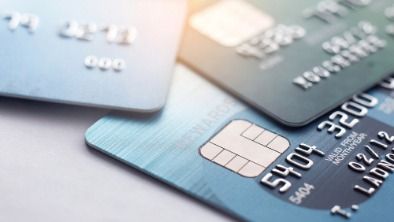
Are You Sure Your Credit Card Still Works?
After we got married, my wife and I combined our finances. We moved most of our money from a local brick and mortar bank to a bank that we primarily access online and over the phone.
This arrangement has worked out well for us, but it does mean some accounts that were previously utilized many times a week have now lain dormant for quite a while. We’re not really too worried about the checking and savings account, but we do keep a close eye on the credit card from that bank.
The card is important to us because not only is it the largest line of credit we have available to us (we rent, have no student loans and no car loan), but it’s also been open the longest – it has a major affect on my wife’s credit score.
With the recent increase in banks closing customers’ cards, we started to worry that our card would mysteriously one day disappear, since we don’t use it very much.
According to this recent article from the Wall Street Journal, while ‘surprise’ card cancelations are on the rise, there are risk factors and other things you can be aware of that might help you keep that card in your wallet.
From the article:
“An issuer can cancel a credit-card account without notice when …
* A customer hasn’t used the card in more than a year.
* A customer has defaulted or is delinquent on the account.An issuer can cancel an account and send written notice within 30 days after the cancellation when a reassessment deems the cardholder too risky.”
In fact, your bank doesn’t even have to notify you about the account closure if your account is closed based on inactivity, default, or late payments. Many people find out about the cancelation only after their card is turned away at a store or restaurant.
So what can we do to keep our cards and avoid damage to our credit scores?
– Pay attention: Double check your bills to make sure you’re not late or in default. Monitor your credit report to make sure it’s accurate, and do all you can to fix any problems.
– Use your card: We use our card for the occasional entertainment expense. Interesting enough, despite hardly using the card over the past few months, our credit limit was increased, helping us our with our credit score. Having a set plan for a card (a small recurring bill or a determined budget category) will help keep the card active.
– Diversify: After reading the article, I realized that even if we do everything we can to keep that card active, we’d really be hurting if it was ever closed. We need another option that will reduce the overall impact of a card closure on our score. Granted, the impact won’t be as bad for someone with a mortgage or student loans, but when a credit card is the only credit you’ve had time to get, it could be a whopper.
I’m much more comfortable now that I know we’re working to keep the card open. I now know that we need to diversify to decrease the impact that each source of credit has on our credit score. Knowing what’s going on with your cards can help preserve your hard financial work and can prevent surprises at the check out stand as well.
Source: Wall Street Journal, Credit-Card Companies Can Cancel Cards Without Customer Knowledge, Aug. 12, 2009.

Article comments
Jeff,
I learned the hard way! I got one of my longest and highest limit card cancelled. So I came up with a plan. I put all my credit cards in a business card holder and put notes on each one when was the last time I used them:
link
Check it out! I think this would help you